"If we want a new materiality we have to reimagine our relationship with the world"
Promotion: architects Joseph Grima and Vo Trong Nghia were among a group of international urban design thinkers who met at the 2022 Living Cities Forum in Melbourne, Australia to discuss the construction industry's material use in a world of finite resources.
Living Cities Forum is an annual event organised by The Naomi Milgrom Foundation that gathers architects and urban thinkers to explore the role of design, planning and architecture in shaping our society.
Now in its 5th edition, this year's event was held on Thursday 21 July at The Edge, Fed Square and was based around the theme Material Flows.
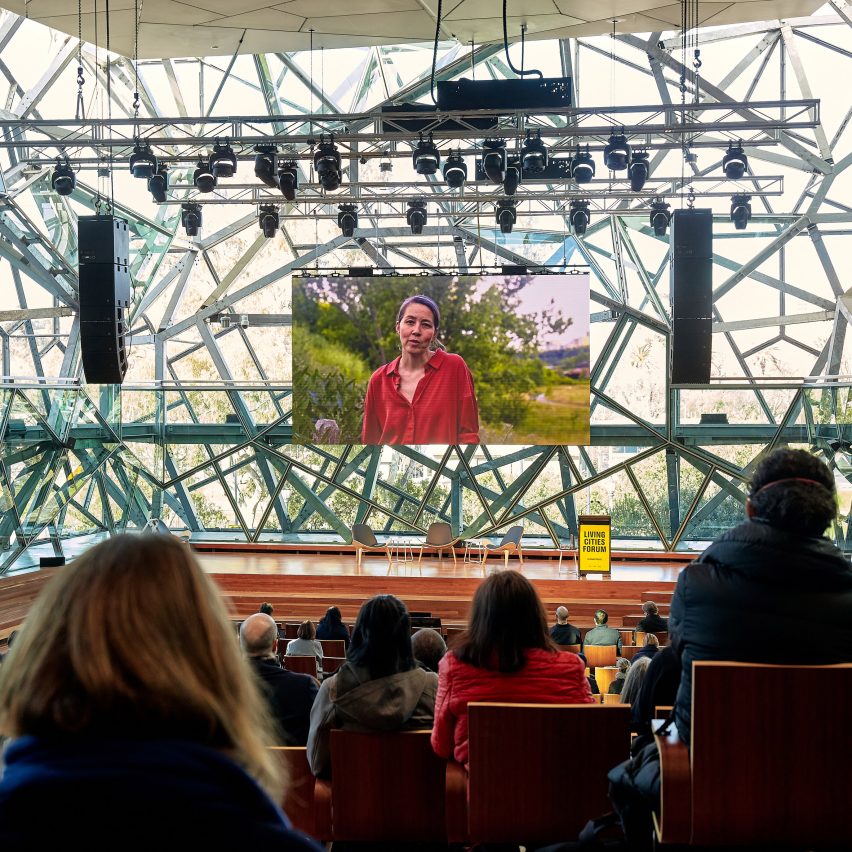
Speakers explored whether the current global disruptions to material flows, as a result of the global pandemic, wars and other destabilising factors, could be our chance to rethink the materials we have taken for granted. The forum provided an opportunity to rethink logistics as ethics and to reframe scarcity as the catalyst for new abundance.
"While there has been some increased awareness of the impacts of our material use, our approach to building construction continues to reflect short-term commercial interests over long-term environmental interests," said the event's organisers. "These short-term interests are most evident in the material flow of pollution."
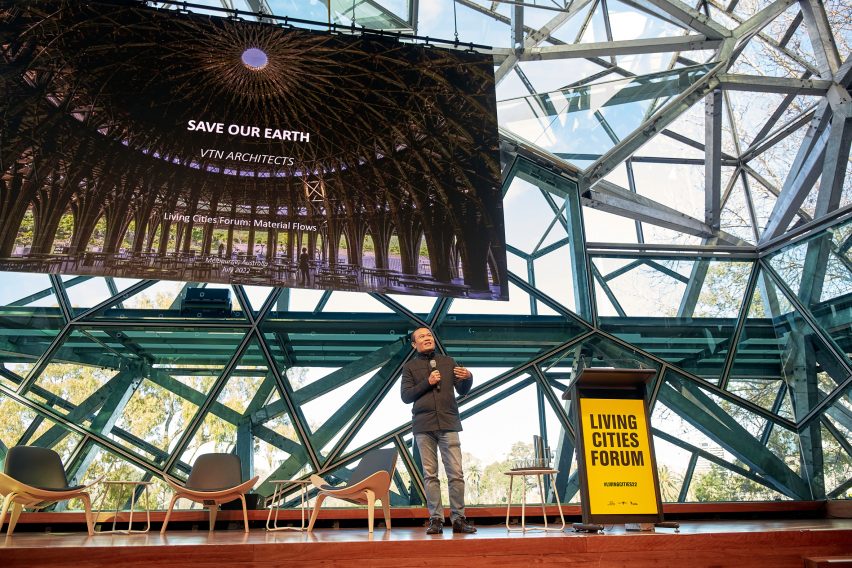
The speakers included Indigenous Elder, Dave Wandin; British architect and co-founder of Dark Matter Labs, Indy Johar; Canadian landscape architect, Jane Mah Hutton; British architect and educator, Joseph Grima; Ghanaian educator and architectural scientist, Mae-ling Lokko; Vietnamese architect, Vo Trong Nghia; and Chinese architect, Xu Tiantian.
"Please, as designers and thinkers of tomorrow, curators of cities, start to acknowledge the scale of what we are about to see," pleaded Indy Johar. "It requires us to look at everything. If we want new materiality we have to reimagine our relationship with the world. It is not a technological fix alone. It requires us to think fundamentally in a different way."
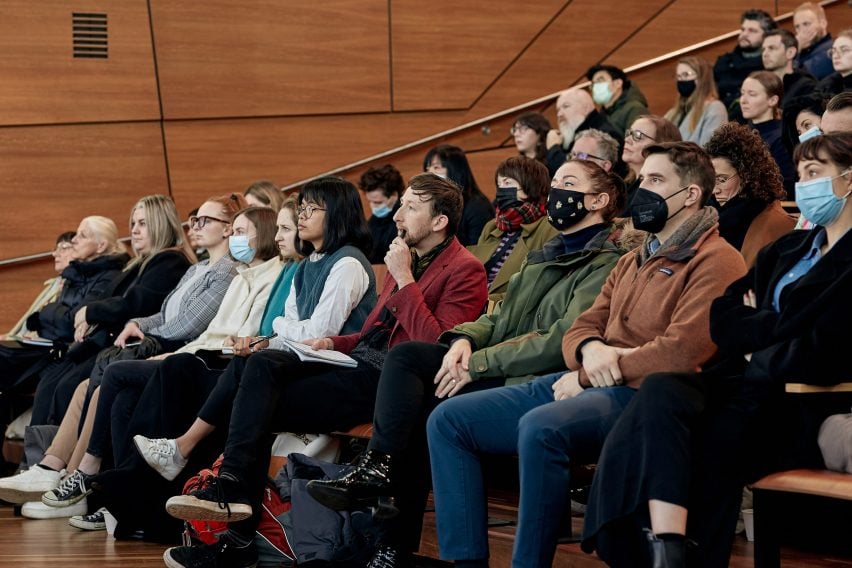
Joseph Grima, whose book Non-Extractive Architecture, advocates for "a new spirit in design" that conserves the Earth's resources, called into question whether environmental depletion is necessary and what other models are out there.
"If we priced in the full cost of the materials most cities are built from—for people and the planet—then the way we design and build would be very different," he argued.
Canadian landscape architect Jane Mah Hutton introduced her recent book, Reciprocal Landscapes, which traces the origins, labour practices and regimes required to bring five key materials to the streets of Manhattan.
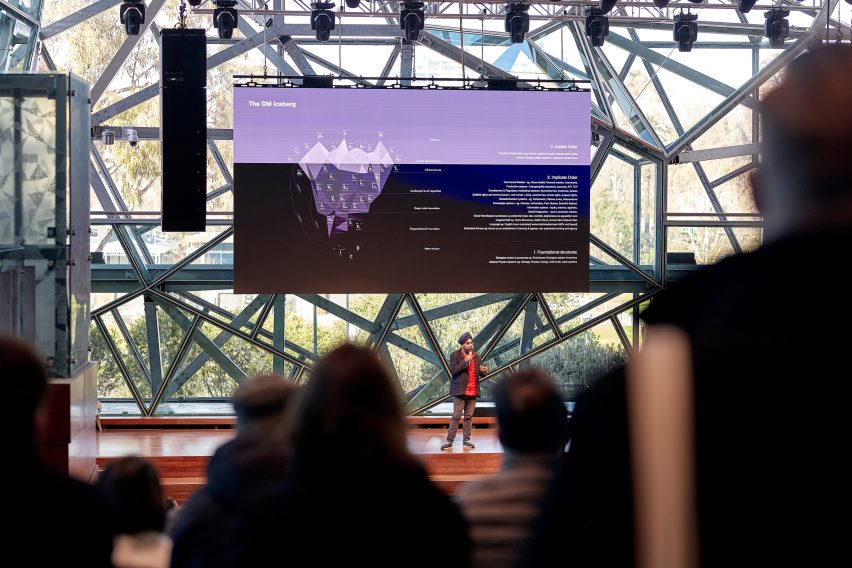
Guano fertilizer, granite, steel, trees and wood provide examples of how material flows can be disrupted by humans, and how we have become alienated from our materials, the places they come from and the people involved in making or providing them.
Architectural scientist Mae-ling Lokko explored how can dealing with waste become less of a punishment and more of an opportunity. Sharing her work in Ghana, Lokko explored three key material flows, involving the land, the plate and the building.
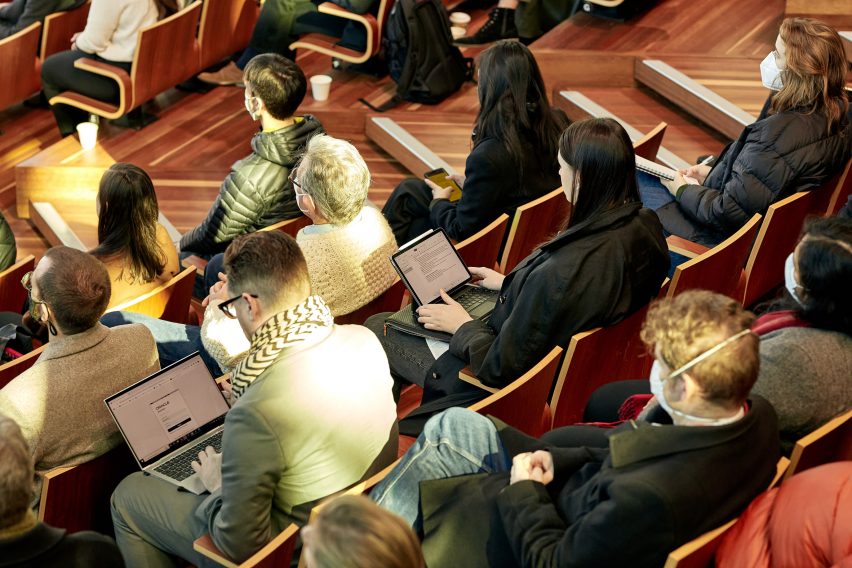
Using coconut husks and mycelium – a type of fungus used to compost food waste – as examples of alternative building products, Mae-Ling demonstrates a transformational pathway in which agricultural and food waste materials can present new opportunities within a bio-economy.
Other speakers included Vo Trong Nghia, whose firm is renowned for bringing greenery into all aspects of its projects, and reconnecting people and nature using low-cost, sustainable materials.
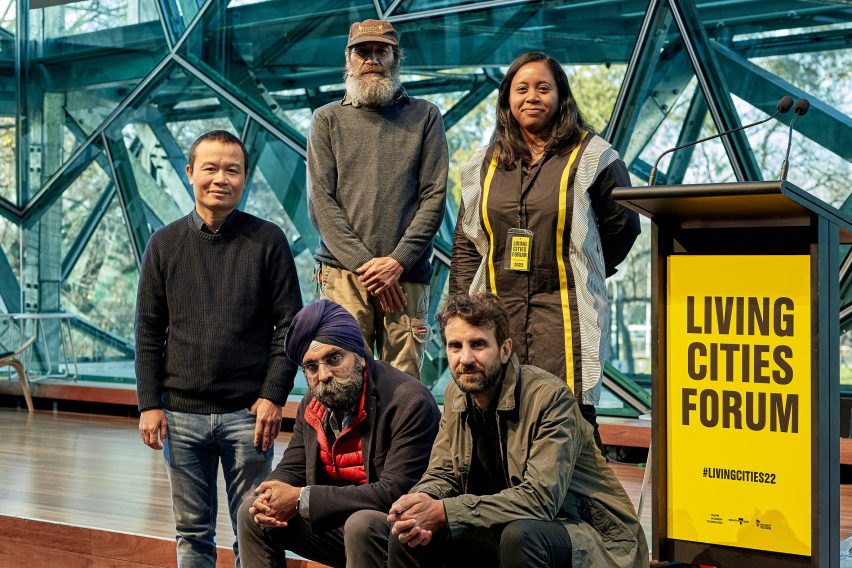
His studio practices a two-hour daily meditation practice, which Nghia attributes to their "super-focus" when developing concepts. Since 2007, the decorated firm has won more than 130 international awards.
Also delivering a keynote lecture was architect Xu Tiantian. Speaking from Beijing, Tiantia introduced the concept of "architectural acupuncture" with four projects in rural China, where small projects using local materials and low-tech systems have created big opportunities for revitalising rural villages.
The event, which has taken place every year since 2017, has had a substantial influence on the thinking, discourse, collaboration and policy-making that determines approaches to urban development across Australia.
To learn more about Living Cities Forum visit its website.
Partnership content
This article was written by Dezeen for Living Cities Forum as part of a partnership. Find out more about Dezeen partnership content here.